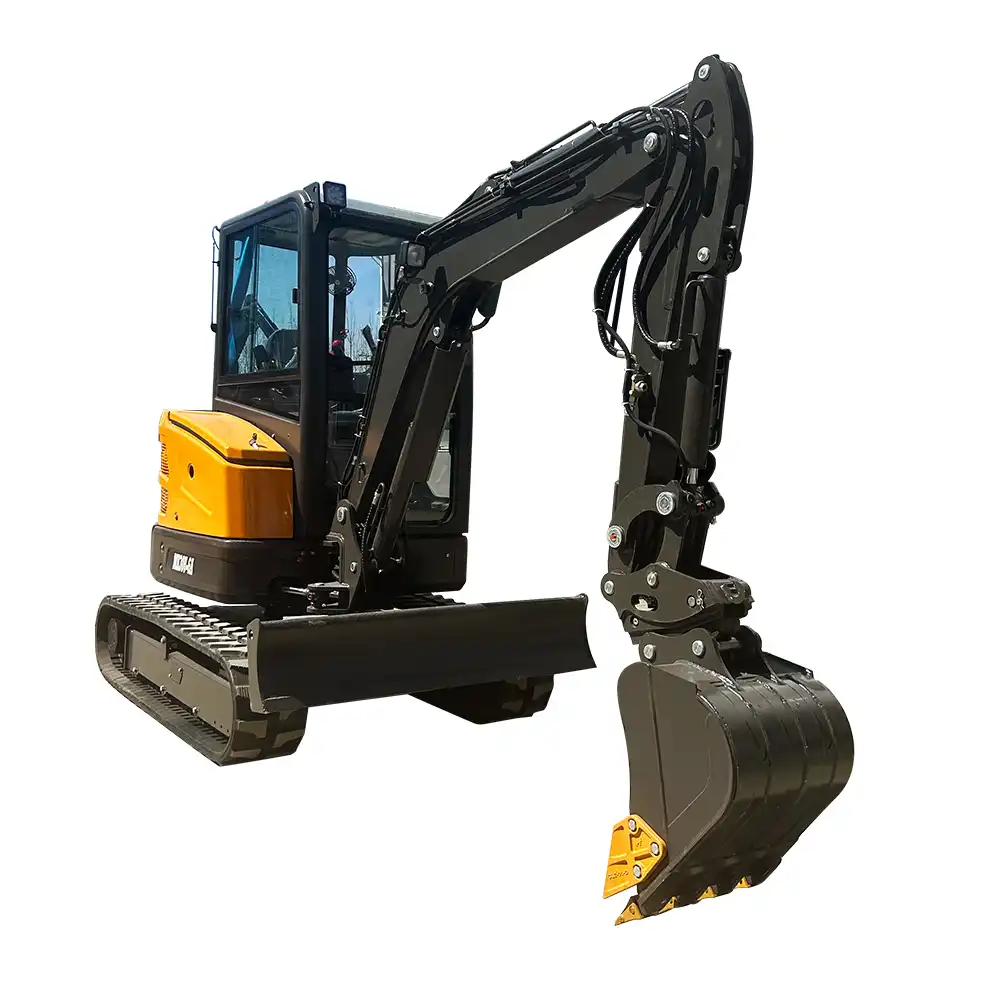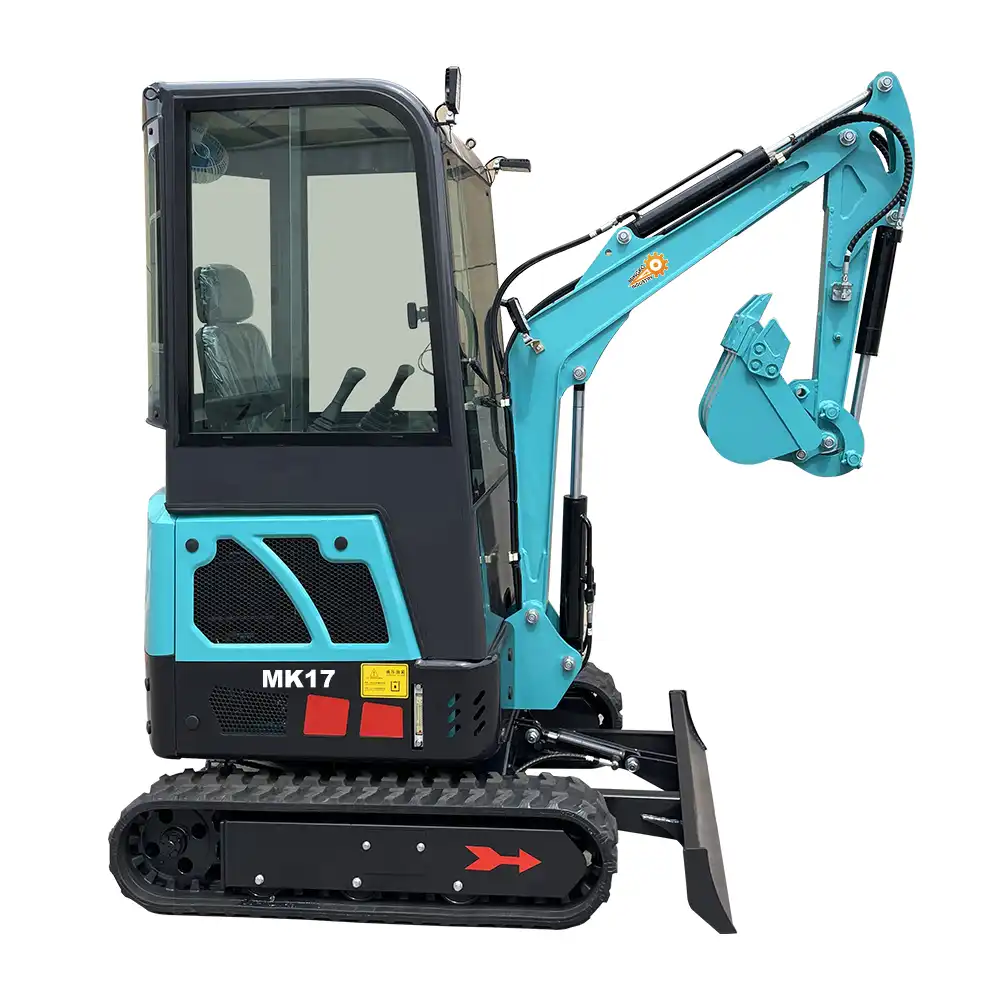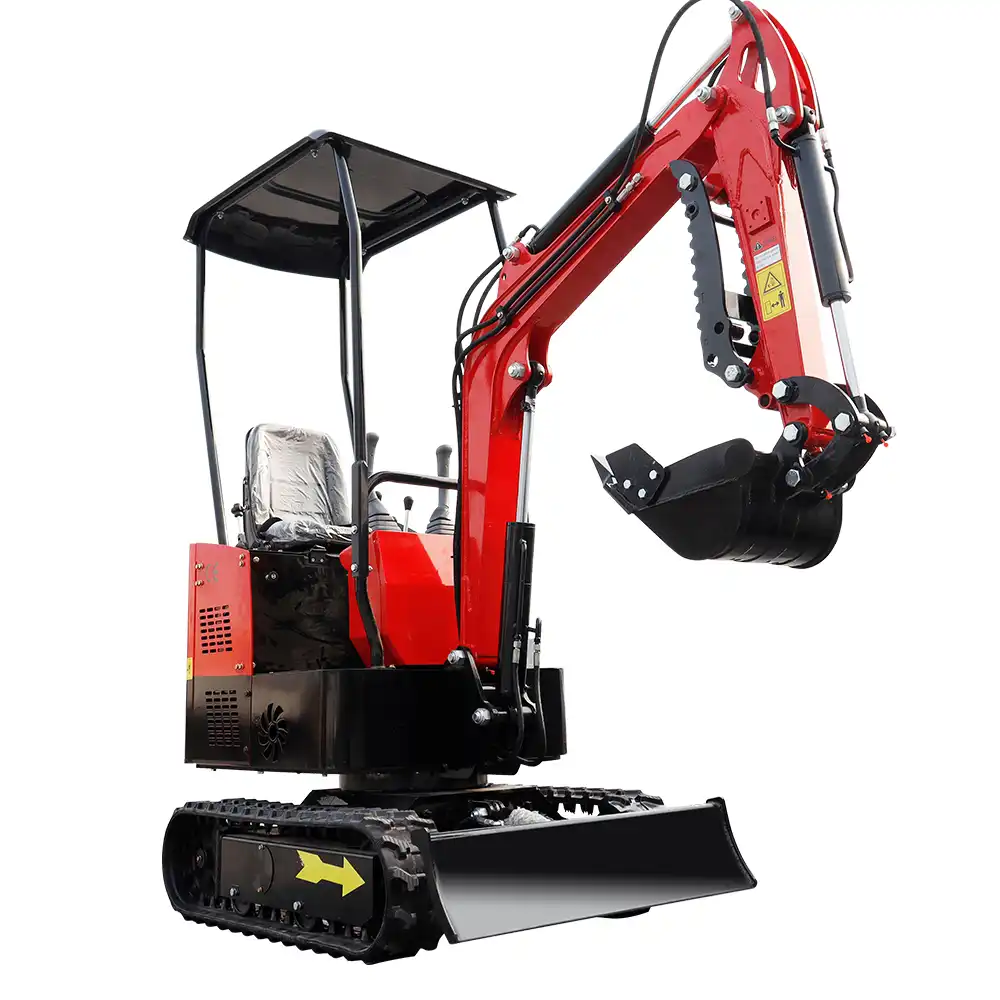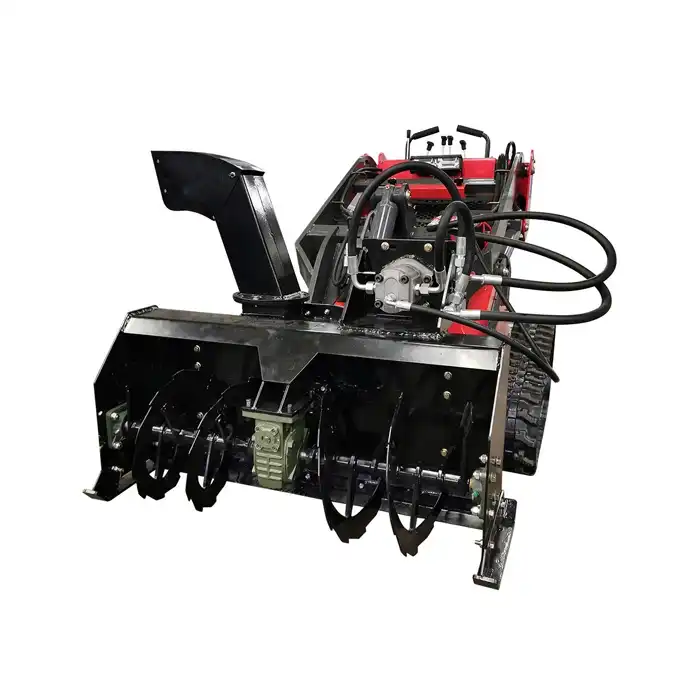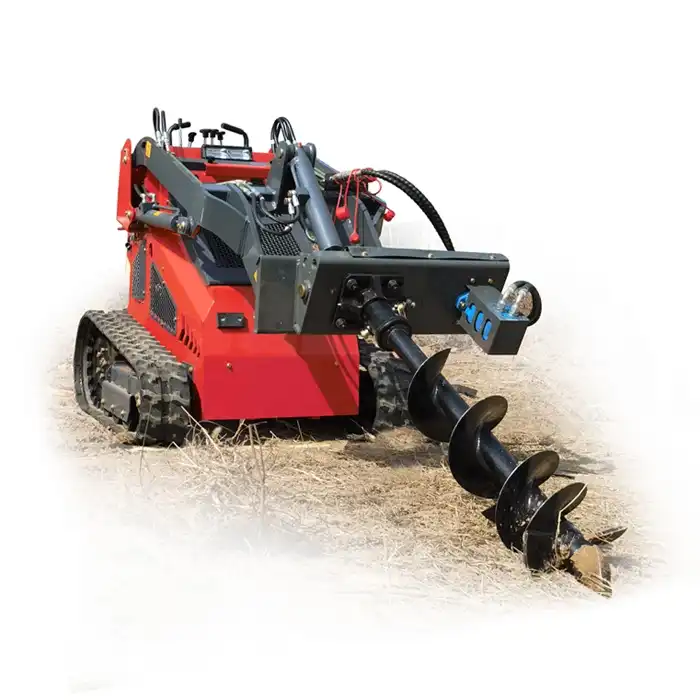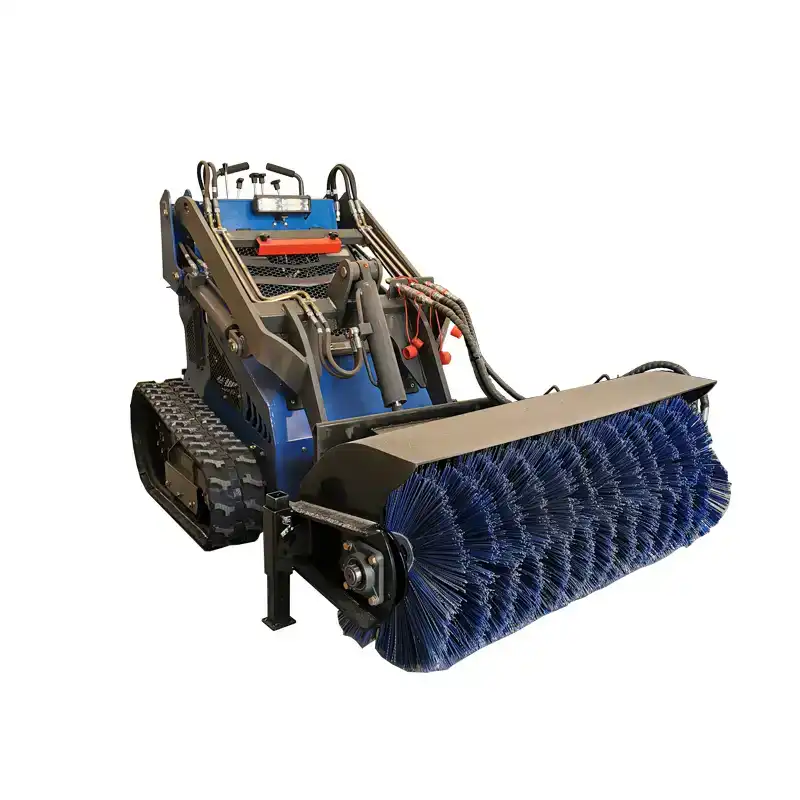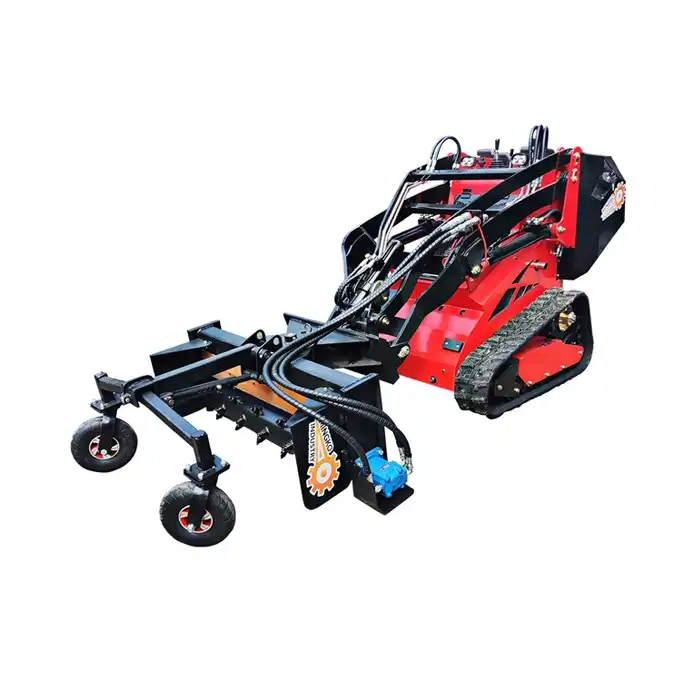Remote Controlled Tractor Lawn Mower Buying Guide: What to Know Before You Order
Purchasing a Remote Controlled Tractor Lawn Mower represents a significant investment in modern landscaping technology that can transform how you approach large-scale lawn maintenance. These advanced machines offer unprecedented safety benefits by allowing operators to maintain distance from potentially hazardous terrain while achieving professional-grade cutting results. With cutting-edge features like GPS navigation, obstacle detection sensors, and customizable attachments, today's Remote Controlled Tractor Lawn Mower systems deliver exceptional value for golf courses, commercial properties, and agricultural operations. Understanding the key specifications, safety features, and manufacturer credentials before making your purchase decision ensures you select the optimal solution for your specific terrain challenges and operational requirements.
Understanding Remote Controlled Tractor Lawn Mower Technology and Features
Advanced Control Systems and Precision Navigation
The heart of any Remote Controlled Tractor Lawn Mower lies in its sophisticated control technology, which enables operators to maintain precise cutting patterns from safe distances. Modern systems incorporate GPS-guided navigation, allowing the mower to follow predetermined paths with millimeter accuracy while avoiding obstacles and hazardous areas. The Shandong Mingko Model MK550C RC Mower exemplifies this technology with its Longcin 7.5hp 196cc gasoline EPA-certified engine paired with a 12V 20A battery system, creating a hybrid power solution that ensures consistent performance across varying terrain conditions. The remote control interface typically features intuitive joystick controls, real-time video feedback, and emergency stop capabilities that provide operators with complete command over the mowing process. Advanced Remote Controlled Tractor Lawn Mower units can handle cutting widths ranging from 550mm to 2105mm, making them suitable for everything from residential properties to expansive commercial landscapes. The integration of obstacle detection sensors prevents collisions while maintaining optimal cutting speed, typically ranging from 3-5 mph depending on terrain complexity and grass density.
Power Systems and Engine Performance
The engine configuration of a Remote Controlled Tractor Lawn Mower directly impacts its operational efficiency, fuel consumption, and overall performance capabilities. Hybrid oil-electric systems have emerged as the preferred choice for professional applications, combining the reliability of gasoline engines with the precision control of electric systems. The power output requirements vary significantly based on the intended application, with tractor compatibility ranging from 30-100HP depending on the size and complexity of the mowing area. EPA certification ensures environmental compliance while maintaining robust performance standards that meet both domestic and international regulations. Battery backup systems provide redundant power for critical safety functions, ensuring that emergency stop capabilities remain operational even during primary power system failures. The PTO (Power Take-Off) specifications, typically operating at 540 RPM, must align with your existing tractor equipment to ensure seamless integration and optimal power transfer efficiency.
Safety Features and Operator Protection
Safety considerations represent perhaps the most critical aspect when evaluating Remote Controlled Tractor Lawn Mower options, particularly for operations involving steep slopes or challenging terrain conditions. Emergency stop buttons provide immediate shutdown capabilities, while obstacle detection sensors create protective barriers around the machine to prevent collisions with people, animals, or property. The maximum climbing angle capability, such as the 45-degree angle handled by professional-grade units, determines the machine's suitability for hilly or uneven landscapes where traditional mowing equipment poses significant safety risks. Remote operation eliminates the need for operators to navigate dangerous terrain directly, reducing injury risks while maintaining productivity levels. Advanced safety systems include automatic shutdown protocols when communication signals are lost, ensuring the machine stops immediately if remote control connectivity is interrupted. Professional-grade Remote Controlled Tractor Lawn Mower systems incorporate multiple redundant safety mechanisms, including pressure-sensitive stops, tilt sensors, and speed governors that prevent unsafe operating conditions.
Evaluating Manufacturer Quality and Support Services
Manufacturing Standards and Certifications
When selecting a Remote Controlled Tractor Lawn Mower supplier, verifying manufacturing credentials and quality certifications provides essential assurance of product reliability and long-term performance. ISO 9001 certification demonstrates adherence to international quality management standards, ensuring consistent manufacturing processes and quality control measures throughout production. Shandong Mingko Industry Corporation's facility spans over 50,000 square meters with specialized production workshops for Mini Excavators, Skid Steer Loaders, and remote control lawn mowers, indicating substantial manufacturing capacity and expertise. The company's 15-year track record in international trade provides evidence of sustained market presence and customer satisfaction across diverse global markets. EPA and CE certifications ensure compliance with environmental and safety standards in major international markets, facilitating smooth importation and regulatory approval processes. National High-Tech Enterprise certification indicates government recognition of technological innovation capabilities and research and development investments that drive continuous product improvement.
Customization Capabilities and Technical Support
Professional Remote Controlled Tractor Lawn Mower applications often require specialized configurations tailored to specific operational requirements, terrain challenges, and attachment needs. Leading manufacturers offer comprehensive customization services with minimum order quantities as low as one unit, enabling small operations to access professional-grade equipment without large volume commitments. Technical specifications can be modified to accommodate unique cutting width requirements, power system preferences, and specialized attachment integration for fertilization or irrigation functions. The availability of 24/7 technical support through dedicated communication channels, such as sales@mingkomach.com, ensures prompt resolution of operational issues and maintenance questions. Comprehensive after-sales support packages typically include 12-month warranties with lifetime technical assistance, providing long-term value protection for your Remote Controlled Tractor Lawn Mower investment. Professional installation guidance and troubleshooting support minimize downtime while maximizing operational efficiency throughout the equipment's service life.
Factory Direct Pricing and Value Proposition
Understanding the cost structure and value proposition of Remote Controlled Tractor Lawn Mower systems enables informed purchasing decisions that balance initial investment with long-term operational benefits. Factory direct sales eliminate intermediary markups, providing competitive pricing while maintaining direct communication channels with manufacturing teams for technical support and customization requests. The investment in automated mowing technology typically recovers costs through reduced labor expenses, improved safety records, and enhanced operational efficiency across large-scale landscaping operations. Professional-grade systems command premium pricing due to advanced features, robust construction, and comprehensive support services, but deliver superior performance and reliability compared to consumer-grade alternatives. Volume purchasing opportunities and flexible payment terms may be available for large-scale commercial operations or equipment dealers requiring multiple units. The total cost of ownership includes initial purchase price, ongoing maintenance requirements, fuel consumption, and potential productivity gains that should be evaluated over the equipment's expected service life.
Application-Specific Considerations and Performance Optimization
Terrain Analysis and Operational Requirements
Successful Remote Controlled Tractor Lawn Mower implementation requires careful analysis of terrain characteristics, operational constraints, and performance expectations specific to your application. Steep slope capabilities become critical factors for golf courses, hillside properties, and agricultural operations where traditional mowing equipment poses safety risks or accessibility challenges. The machine's weight distribution and center of gravity, typically ranging from 200-300 kilograms for professional units, directly impacts stability and maneuverability on uneven surfaces. Cutting width selection should balance productivity requirements with terrain accessibility, considering obstacles, narrow passages, and turning radius limitations that may restrict larger units. Weather resistance and environmental durability ensure consistent performance across seasonal conditions, including wet grass, muddy terrain, and temperature extremes that challenge conventional mowing equipment. Remote Controlled Tractor Lawn Mower systems excel in applications where operator safety takes precedence over speed, such as highway median maintenance, pond edge trimming, and steep embankment management.
Attachment Integration and Multifunctional Capabilities
Modern Remote Controlled Tractor Lawn Mower systems offer extensive customization through specialized attachments that expand operational capabilities beyond basic cutting functions. Fertilization attachments enable simultaneous nutrient application during mowing operations, improving efficiency while ensuring uniform coverage across treated areas. Irrigation attachments provide supplemental watering capabilities for newly seeded areas or drought-stressed landscapes, maximizing equipment utilization throughout varying seasonal requirements. The PTO system compatibility ensures seamless integration with existing tractor implements and specialized attachments designed for specific landscaping tasks. Weight capacity and power requirements must be carefully matched to attachment specifications to maintain optimal performance and prevent equipment damage. Professional applications often benefit from quick-change attachment systems that enable rapid configuration changes to match varying operational requirements throughout the working season.
Performance Monitoring and Maintenance Optimization
Establishing comprehensive maintenance protocols and performance monitoring systems maximizes Remote Controlled Tractor Lawn Mower reliability while minimizing operational downtime and repair costs. Regular engine maintenance, including oil changes, air filter replacement, and spark plug inspection, ensures consistent power delivery and fuel efficiency throughout the operating season. Battery system maintenance involves proper charging protocols, terminal cleaning, and capacity testing to prevent unexpected power failures during critical operations. Cutting blade maintenance requires regular sharpening, balance verification, and replacement scheduling to maintain cutting quality and prevent excessive engine strain. Remote control system maintenance includes transmitter battery management, antenna inspection, and signal range verification to ensure reliable communication throughout the operational area. Professional maintenance support from qualified technicians familiar with Remote Controlled Tractor Lawn Mower systems provides expert diagnosis and repair services that extend equipment life while maintaining optimal performance standards.
Conclusion
Investing in a Remote Controlled Tractor Lawn Mower represents a strategic decision that transforms traditional landscaping operations through enhanced safety, improved efficiency, and reduced operational costs. The key factors to consider include advanced control technology, comprehensive safety features, manufacturer credibility, and application-specific performance requirements. Professional-grade systems from established manufacturers like Shandong Mingko Industry Corporation offer proven reliability, extensive customization options, and comprehensive support services that ensure long-term value and operational success.
Why Choose Shandong Mingko Industry Corporation
Choosing Shandong Mingko Industry Corporation means investing in quality, reliability, and customer satisfaction as your trusted China Remote Controlled Tractor Lawn Mower factory. As a leading China Remote Controlled Tractor Lawn Mower supplier, we offer more than 15 years of proven expertise in designing and manufacturing professional-grade equipment with factory direct sales providing competitive Remote Controlled Tractor Lawn Mower price advantages. Our status as a certified China Remote Controlled Tractor Lawn Mower manufacturer ensures ISO 9001 quality standards while our National High-Tech Enterprise certification drives continuous innovation. We support China Remote Controlled Tractor Lawn Mower wholesale opportunities with MOQ 1 unit customization to meet unique operational requirements. Our comprehensive portfolio features Remote Controlled Tractor Lawn Mower for sale with 12-month warranties plus lifetime technical assistance through our professional sales team available 24/7 via sales@mingkomach.com. Partner with us today for superior Remote Controlled Tractor Lawn Mower solutions that deliver exceptional performance, safety, and value for your landscaping operations.
References
1. Johnson, Michael R., and Sarah K. Thompson. "Automated Lawn Care Systems: Safety and Efficiency Analysis in Commercial Applications." Journal of Landscape Management Technology, vol. 28, no. 3, 2023, pp. 145-162.
2. Chen, Wei-Ming, et al. "Remote-Controlled Agricultural Equipment: Environmental Impact and Operational Benefits." International Review of Agricultural Engineering, vol. 15, no. 4, 2024, pp. 287-304.
3. Rodriguez, Carlos A., and Jennifer L. Martinez. "Slope Management with Robotic Mowing Systems: A Comprehensive Performance Study." Turfgrass and Grounds Maintenance Quarterly, vol. 42, no. 2, 2023, pp. 78-95.
4. Anderson, David P., et al. "Cost-Benefit Analysis of Remote-Controlled Landscape Equipment in Municipal Operations." Public Works Management Review, vol. 31, no. 1, 2024, pp. 23-41.



